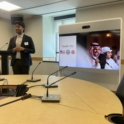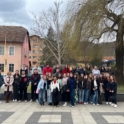Abdulaziz reflects on the highlights from serving as a mentor for CEW.
STORIES
Project KapitKada: Human Rights and Mental Health
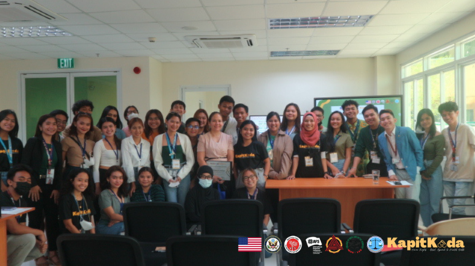
by Ainie Tabua (2016-17, Philippines, placed by PAX in Appleton, WI)
In support of destigmatizing mental health, the YES Philippines alumni Lanao Del Norte community partnered with Mindanao State University - Iligan Institute of Technology’s (MSU-IIT) Center of Human Rights Education for Project KapitKada: A Human Rights Based Approach to Mental Health. The event gathered 30 of the institution’s student leaders plus community youth advocates.
Project KapitKada, a portmanteau of two beautiful Filipino words, “Kapit” (meaning to hold) and “Barkada” (group of friends), was a one-day initiative where participants tackled the student body’s current problems surrounding mental health, and brainstormed possible solutions and interventions.
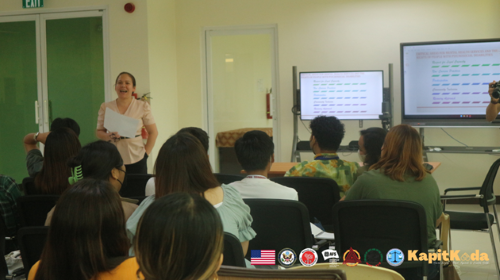
The workshop opened with an informative discussion with Prof. Emelyn R. Mordeno, head of the Human Resource Management Division. One of the important take-aways from her discussion was for people to be reminded that individuals with mental health issues are still human beings entitled to basic human rights. We must help build a society that is more inclusive and accepting.
Participants were able to engage with each other directly during the World Café session: rotating small group discussions around challenges, coping mechanisms, and possible courses of action. The participants shared similar sentiments about the challenges underlying mental health amongst college students, such as loneliness, homesickness, high stress from academic work, toxic environments, isolation during the pandemic, lack of self-esteem, invalidation of emotions from families and peers, and the lack of social/mental support in times of need.
To cope with such stresses, some shared they reach out to other people such as families, friends, counselors, or even strangers. Some focused on self-care through re-setting routines, discovering (or re-discovering) hobbies, and a healthy lifestyle of exercise and balanced nutrition. Others spoke about turning to nature, such as picturesque mountain views or calm sea breezes, to relax the mind. Spirituality also helps others cope through faith, devotion, meditation and journaling.
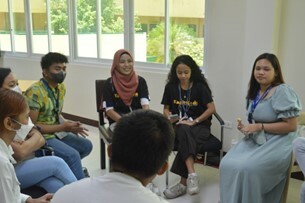
After sharing challenges, participants turned to discussing solutions that could help them, and others, in coping with mental health issues. Some solutions participants developed included: Training on building peer support groups, developing a response team to handle the increasing numbers of students having anxiety attacks, training students to recognize and handle signs of stress in themselves and others, mobilizing student councils to organize mental health awareness initiatives, conduct seminars, and organize safe space events and activities.
This discussion was then followed by an interactive project-pitching activity where participants group together to brainstorm and present their initiatives that can be implemented in the institution.
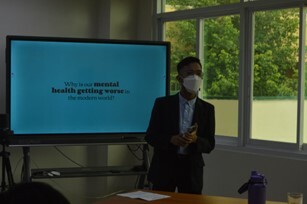
To wrap up this wonderful session, Ms. Jeane Lucitte Marcera, RPM., co-founder and chairperson of the Training and Development of Iligan Youth Mental Health Advocates shared reasons why mental health should be discussed in the community: One, it helps people who are dealing with mental health issues by speaking it out loud, allowing them to be vulnerable, which leads to number two, which is self-acceptance. Three, it breaks the wall of stigma that is evident in our society. Four, it increases connectedness among people, and five, it allows those who are suffering to reach out for support.
The event ended with a few words from the KapitKada Project Head, Ainie Tabua '17, thanking everyone for making the event a success, “We look forward to these project ideas in supporting mental health to be realized and implemented in your respective organizations.”


